Working remotely doesn’t mean you have to stay at home all day, staring at your computer and never interacting with anyone else.
These eleven software tools will help make working remotely as effective as possible and allow you to work more comfortably, efficiently, and effectively whether you’re in the office or at home working from your couch on your iPad.
1) Trello
Whether you’re working on a project or managing your company, Trello is an easy and efficient way to collaborate and organize projects. It allows you to break down a project into boards, lists, and cards that can be arranged however you choose.
If you’re working with team members remotely or want some structure around your day-to-day tasks, use Trello as a way of staying organized and focused. Even if it isn’t related directly to running your business, Trello has an iPhone app for when inspiration strikes on a walk outside.
2) Slack
Slack is a modern messaging app that allows you to easily collaborate and communicate with your team.
You can use Slack for both intra-team communication, as well as open discussions with those outsides of your organization.
And since it’s cloud-based, you can access Slack from just about anywhere via a web browser or mobile device—making it easy for your remote employees and freelancers to always be in touch.
3) First base
The first-base is a simple project management tool that focuses on collaboration and transparency. The first base helps with common organizational tasks such as task management, time tracking, and expenses.
Features include document sharing and team messaging so you can stay organized at all times. First base integrates with Slack and HipChat for messaging, Trello for project management, FreshBooks for expense reporting, Invoice Ninja for invoicing, Xero accounting software, Google Drive, and Dropbox.
First-base is perfect for distributed teams or those who like to work from home but need some help staying on top of their organization.
4) Loom
This is a replacement for Google Drive, allowing teams and clients to access their files from anywhere they want.
The power of Loom comes with video conferencing that allows you to add people to your conference through face time. Loom is pretty straight forward and there aren’t too many bells and whistles, but it still has a lot of value as a go-to platform for sharing files, either internally or externally with clients.
Another bonus: It also comes integrated with Zapier so if you have an account there, it makes it even easier! Price: $3 per month/ per person. 5 Users. 3 GB storage. 500 min (video) conferences/month
5) Asana
Asana is a very popular tool. It has team collaboration, task management, and project management features all rolled into one. Most teams have already begun using it for free.
This includes startups, agencies, freelancers, and small companies. Its effectiveness depends on whether everyone sticks to it and uses it frequently; or, conversely, if users simply use it once or twice and then forget about its existence.
The software makes use of both desktop computers and mobile devices via applications available for iPhones as well as Android phones.
6) Clickup
Clickup is an online project management tool. This easy-to-use platform allows teams of all sizes and industries to plan, collaborate, and manage projects from any device.
From companies like Pixar, Samsung, Stanford University, Nickelodeon Studios, and Yale University. If you’re looking for a way to bring your remote team together or just stay organized yourself, Clickup might be for you.
With features like task boards and file sharing built into your dashboard, you can easily create tasks for yourself or have others create them—either way, keeping track of your time is simple with time tracking tools available at your fingertips.
The built-in calendar function lets you see when others are working on tasks so that you can avoid scheduling conflicts.
7) Tettra
Tettra is a social media management app that helps teams of all sizes manage multiple social media profiles from one dashboard.
One standout feature of Tettra is its built-in scheduler, which allows users to share content on different networks at different times so you’re not blasting out your content at peak hours.
It also enables users to track how well their paid posts are performing and what kind of engagement they’re getting for each post.
However, Tettra does come with a catch: It’s only free for up to 15 accounts, after which it starts charging $15 per month or $150 per year for every 15 additional accounts you add beyond that limit.
8) Zoom
This platform is great for conferences and meetings. It provides a simple way to share your screen, engage with remote attendees and give you all of the meeting resources you need, including a chat box, whiteboard, and desktop sharing.
Best of all, it’s free. If you are looking for something more advanced than GoToMeeting or WebEx, Zoom is worth a try.
With an enterprise plan that costs $200 per month per user, Zoom gives your brand room to grow at a price point that won’t break your budget.
For startups just getting off of the ground or for companies who want to keep their expenses low. Zoom can be an excellent option for your brand’s remote workers and conference calls as well as team meetings.
9) Crystal
Many people, especially small business owners, choose to work remotely. These days it’s easier than ever before.
One of my favorite tools for working remotely is Crystal. If you’re an independent worker who needs a high-quality call service, give Crystal a try.
10) Spotify
If you’re not a subscriber, it’s time to start. Spotify is a massive music streaming service with more than 20 million songs and 140,000 playlists from 1.4 million artists.
At $9.99 per month for premium access, Spotify makes it easy for remote workers and solopreneurs to find music that enhances their productivity.
When you can’t access an office or coworking space and need a way to put yourself in the zone, great music can do just that—and Spotify has a ton of choices at your fingertips.
You can even try Spotify free on mobile devices if you want (no credit card required).
11) Gitlab
Gitlab is free, open-source software for teams that use a Git or other SCM (Source Control Management) tool.
It acts as a front end so that your team can access their projects and collaborate remotely. If you’re looking for collaborative work tools like wikis, bug tracking, etc., you’ll need to get another project management app but Gitlab can be used on its own as well.







